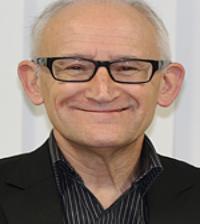The Politics of Anonymous Egg and Sperm Donation
Thu, 17 Jan 2013 13:16:00 GMT
Free Public Lecture by University Professor Eric Blyth on Wednesday 30 January at 6.30pm
PEOPLE born as the result of egg or sperm donation in the UK since 2005 will, when they reach the age of 18, be entitled to know the name of their donor.
 Now a University of Huddersfield professor, who played a key role in the long campaign to end donor anonymity, is to deliver a free public lecture which explains the reasons for his stance and why the rules were changed.
Now a University of Huddersfield professor, who played a key role in the long campaign to end donor anonymity, is to deliver a free public lecture which explains the reasons for his stance and why the rules were changed.
It will be the first in a series of events at which leading experts deal with a wide range of health and social issues.
Eric Blyth (pictured) – who will deliver the opening lecture – is a long-serving Professor of Social Work at the University of Huddersfield, now based at its globally-respected Centre for Applied Childhood Studies. He was a social worker himself before embarking on a 30-year academic career which has seen him involved in research projects in Britain and around the world, with issues surrounding infertility, assisted conception and third-party donation being a major theme.
For 16 years, Professor Blyth was closely involved in the campaign to end donor anonymity in the UK, arguing that it acted against the welfare of children. In 2004 – the year before the rules changed – he was an expert witness when the House of Commons Science and Technology Committee conducted an investigation of human reproduction technology and the law.
On Wednesday 30 January, Professor Blyth’s public lecture will be entitled Unknown Unknowns – The Politics of Anonymous Egg and Sperm Donation.
He explores the issues surrounding medically-assisted egg and sperm donation and recounts the campaign to end donor anonymity.
The event is free and open to all. It takes place in the University’s Canalside East Lecture Theatre, starting at 6.30pm, after registration and refreshments at 6pm. Places can be booked in advance. For further information, contact Dr Berenice Golding at b.golding@hud.ac.uk.
Future lectures in the series, organised by the University’s Institute for Research in Citizenship and Applied Human Sciences, will include:
- Professor Philip Keeley on psychological interventions for people with physical illness (Tuesday 26 February)
- Professor David Canter on investigative psychology (Wednesday 24 April)
- Dr Marilynne Kirshbaum on tackling fatigue after cancer treatment (Wednesday 19 June)
Planned for Wednesday 10 July is a visit from inspirational poet and playwright Lemn Sissay MBE, who was awarded an Honorary Doctorate by the University in 2009. Note that the times and locations of the lectures may vary.







